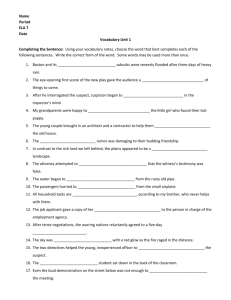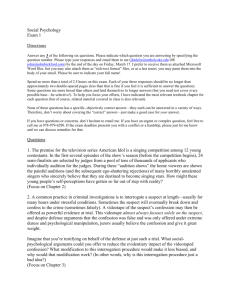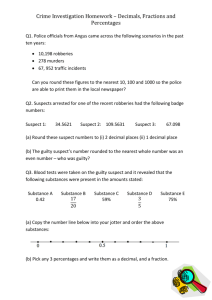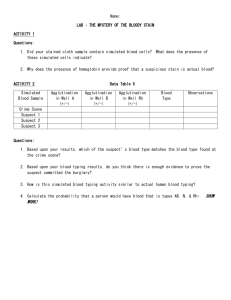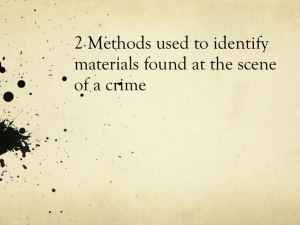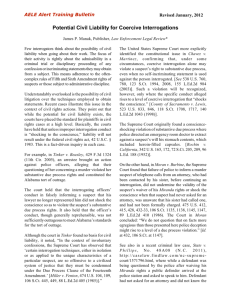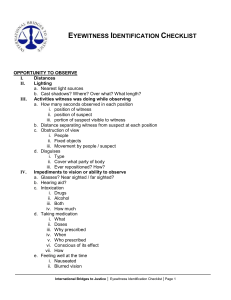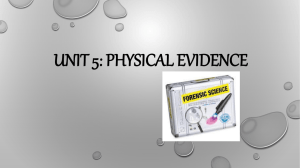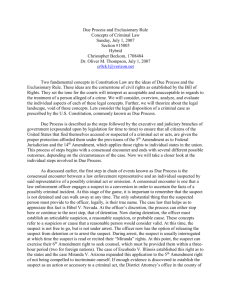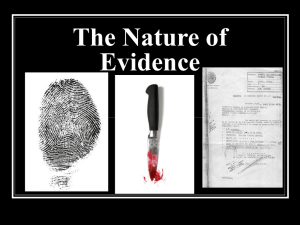Chapter 11 part 1a - Kellogg Community College
advertisement
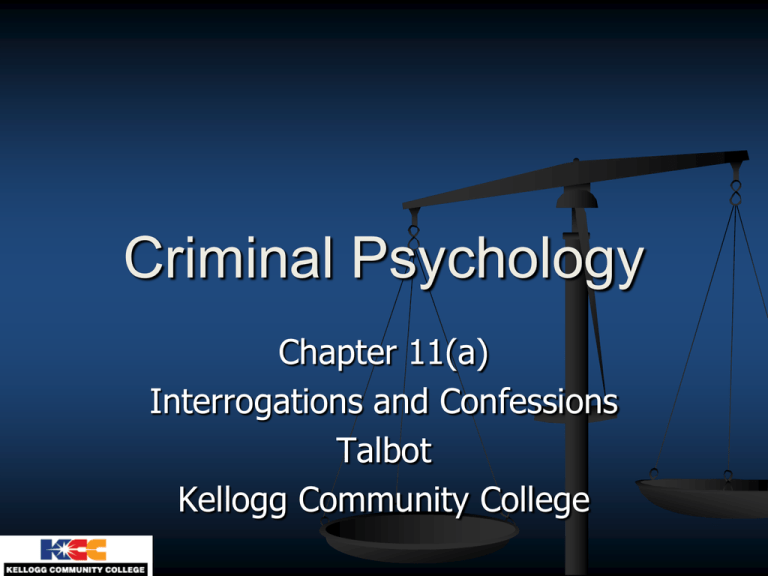
Criminal Psychology Chapter 11(a) Interrogations and Confessions Talbot Kellogg Community College The Importance of Confessions Confession – An admission of guilt. Why so important? “No other class of evidence is so profoundly prejudicial… Triers of fact accord confessions such heavy weight in their determinations that the introduction of a confession makes the other aspects of a trial in court superfluous, and the real trial, for all practical purposes, occurs when the confession is obtained.” (Colorado v. Connelly, 1986, p. 182). Supreme Court Justice William Brennan The role of the Psychologist Evaluator Educator Procedures used in police interrogations Police General Public Expert Witness Author of an amicus brief Interrogations/ Interviews Definition: The exploration and resolution of issues, not necessarily the gaining of a written or oral confession. Location of physical evidence. The presence of accomplices. Other details of the crime or related crimes. The reality. Gain information useful in the attainment of the immediate goal. Interrogation v. Interview What is allowable in this process? Legally permissible interrogation tactics. 1. 2. 3. Misrepresentation of the facts. The use of techniques that take unfair advantage of the emotions, beliefs, or medical condition of the defendant. Failure to inform the suspect of some important fact or circumstance that might make the suspect less likely to confess. The Goals of Law-enforcement. Misrepresentation of the Facts An accomplice/other suspect has named him/her as the primary perpetrator. Informing the suspect that family has confessed. Subjecting the suspect to a staged identification procedure (line-up). Informing the suspect that the victim of a murder is still alive. The use of techniques that take unfair advantage of the emotions, beliefs, or medical condition of the defendant. Feigning support, sympathy, or concern (good cop). Playing on superstitions. Promising secrecy or confidentiality. Telling the suspect that not confessing could have repercussions on the police officer or on the suspect’s family. Failure to inform the suspect of some important fact or circumstance that might make the suspect less likely to confess. Failing to inform the suspect that an attorney has called and inquired into their case. Pretending that evidence favorable to the defendant is non-existent. Manipulative Tactics 1. Minimization – “soft sell” 2. Techniques in which sympathy, face-saving excuses or moral justifications are offered by the interrogator. Maximization – “scare tactics” Exaggerating the seriousness of offense and magnitude of the charges. 3. Knowledge-Bluff – Possession of evidence or insight regarding the suspect’s guilt. Baiting questions – implies the police already know the answer. Rapport Building – “emotional appeal” Mutt and Jeff – “Good-cop, Bad cop” Tactics that are illegal Promises, Threats, & Lies? Physical or psychological coercion Physical force Abuse Torture Threats (even implicit ones) of harm or punishment Prolonged isolation or deprivation (food and sleep) Unfounded promises of leniency Failure to give Miranda Certain types of psychological manipulation “Obliquely suggesting the prospect of harm to the suspect, his relatives, or his property can be interpreted as psychological abuse even though these suggestions do not assume the form of explicit threats” (Rogers v. Richmond, 1960) – Supreme Court The Question Does the suspect reasonably think he or she is in sufficient danger? Rule of Thumb Any promise referencing an escape from punishment or the mitigation of punishment invalidates a confession. This includes any indirect offering of doing what they can to help. Why are not all deceitful tactics excluded? Justice Thurgood Marshall Martin E. Frazier decision (1969) “The fact that the police misrepresented the statements that Rawls had made is, while relevant, insufficient in our view to make this otherwise voluntary confession, inadmissible.” Innocents don’t confess!
